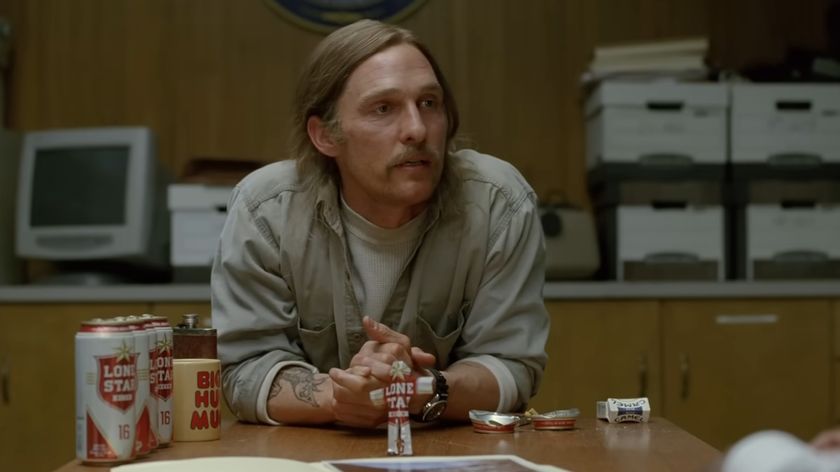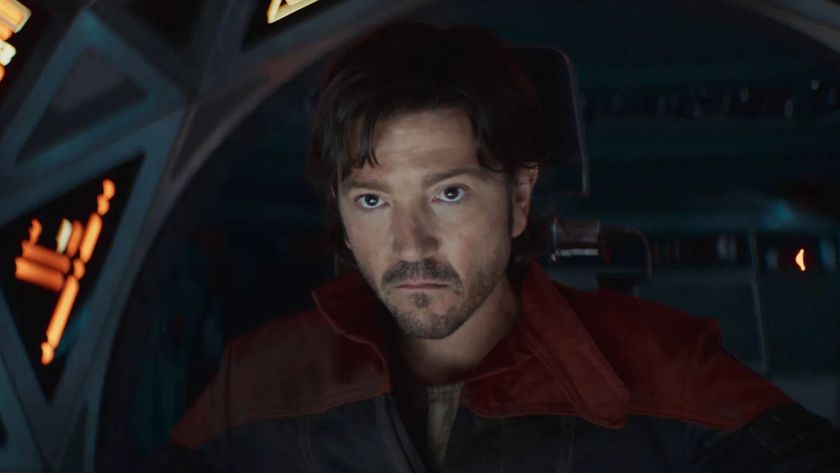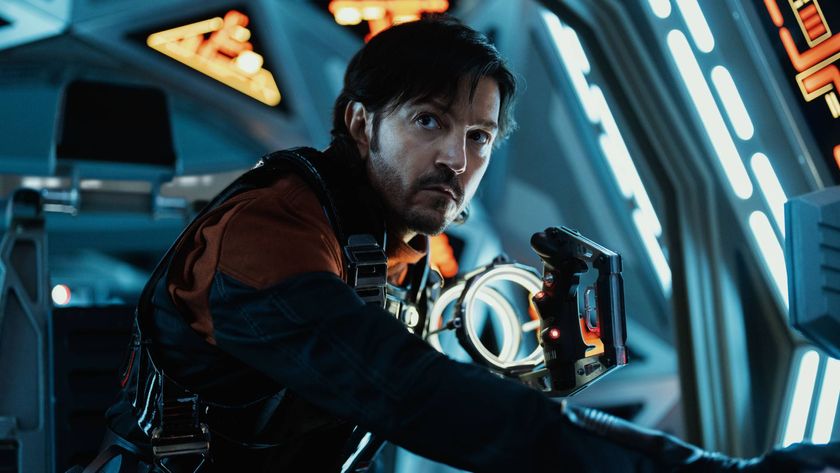Ten years in the future, Scotland has gained independence from the UK and the inhabitants of an online computer game are interfering with the real world. That's the premise behind Charles Stross's latest novel, Halting State - the author talks to SFX about technology, creating a plausible near future and his next book, the Robert Heinlein-inspired Saturn's Children.(You can read more of this interview in the new issue of SFX, on sale from Wednesday 16 January).
Do you think the increase of technology in our lives is a good or a
bad thing?
“Without some aspects of technology -- specifically, medical technology
-- I'd be dead. Without other aspects of technology -- specifically computers -- I wouldn't have had a generally interesting series of jobs for 15 years before I switched to writing. I won't go so far as to say that technology is unambiguously good, but it tends to provide us with lots of options for ways to live our lives that weren't there before. We tend to forget how boring and slow-paced even the recent past was.”
How do you strike a balance between being technologically in-depth, and not losing readers?
“Why bother? There are lots of technologically competent readers out there! I will confess that I do try to sugar-coat stuff a bit; but I'm trying to develop a new kind of hard SF here, based on computation and algorithmics and a leavening of social sciences such as economics, rather than the traditional aerospace engineering and astronomy, and this may make it feel different or more complex than the traditional version of hard SF.”
The book’s written in the second person, which is quite an unusual device. Why did you decide to do it? Did your publishers take some convincing?
“The second person is the natural narrative voice of the computer game, all the way back to the original colossal cave adventure in the early 1970s. The computer is the fourth wall between the audience and the story; it's a machine for generating stories and it is telling the story to *you*, the audience. Writing Halting State in that mode just seemed essential.
“Note that second person narratives are uncommon but not unique in fiction; Jay MacInnery did it in the 1980s, and Christopher Brookmyre is big on it today. Other authors have used it in our own field (Brian Aldiss, I believe). It's just unfamiliar, and it has to be handled with care - it's easy to destroy a reader's sense of suspension of disbelief using a second person narrative, by describing an interior state of mind at odds with what they feel. My publishers took some convincing, but in the end they went by results.”
Sign up to the SFX Newsletter
Get sneak previews, exclusive competitions and details of special events each month!
Is it harder creating a future ten years ahead rather than thousands? Was it difficult deciding what would have changed and what would be much the same - particularly the break-up of the UK?
“Writing near-future SF is indeed much harder than far-future SF - but I'd highlight the dismantled UK as a red herring; living up here in Scotland it doesn't seem far-fetched at all. (I can also point to opinion polls over the past couple of years showing, for the first time, that a majority of English voters wouldn't oppose it).
“Obviously, trying to project a decade ahead has huge drawbacks; you're going to get big things wrong. A writer in 1997 trying to write a novel set in 2007 would almost certainly miss 9/11 and its consequences, and a whole host of similar issues. Going back just 20 years, most of us, back in 1987, would have been frankly astonished by what's happened to China and India and Russia. So in Halting State I mostly focused on a locality with which I'm fairly familiar, and kept the external threat nebulous.
“As far back as 2003 I'd picked up some interesting rumours about Chinese government-backed hackers probing western government networks. And the whole infowar scene has been around since the late 1980s and Clifford Stoll's discovery of Stasi-backed hackers running around NASA systems and ARPANet. It's a fair bet that by 2017 China will be richer than it is today, and the USA will be having to deal with the mess left over from the Bush years, and the EU will be trying to pull itself together from the centre while fragmenting at the edges (as the rich core nations and the poor new members find they've got increasingly less in common).
“Going beyond that, the future is a superset of the present. It encompasses everything we've got today, and adds complexity and extra stuff. The future, as William Gibson put it, is here already; it's just unevenly distributed.”
Were there any previous visions of the future that inspired you?
“Virtually nobody is writing SF set ten years hence; most of the near-future SF visions are, unfortunately, visions of the 1990s or 2000s from the 1970s, and consequently they're not much use as guidance.
I'd love to have been able to do something as widescreen and spectacular as John Brunner's "Stand on Zanzibar", but alas, I didn't have the time or space to paint on a canvas that large. And I've got a strong affection for Bruce Sterling's near future novels, but alas, Bruce has a very American (not to say Texan) tone that just wouldn't fit with what I was trying to do.”
Can you tell us anything about your next book, Saturn's Children? It’s got a bit of a Heinlein influence, hasn’t it?
“Heinlein had a big influence on everybody in this field; he was the first author to come out of the pulps and start treating SF as a serious field and he developed a huge toolkit for talking about the future that many of us use, unconsciously, to this day. In his later period he was also interested in the structure of fiction and narrative, and a whole bunch of ideas we more usually associate with the postmodernists.
“He was also born in 1907. Much of his best work happened in the 1960s; in 1963-67 he was writing books like Glory Road and The Moon is a Harsh Mistress that formed much of my early education in SF as a literature of polemic about social organization. After 1970 his work was highly variable (for medical reasons during the 1970s), but he was still asking questions and tackling topics that were fundamentally more interesting than the ones he approached in the 1950s period for which he is mostly remembered.
“Everybody seems to want to write the perfect 1950s Heinlein juvenile these days. It occurred to me that a much more interesting target was to write the sort of book a mature 55-60 year old Heinlein would be writing if he was alive today, having lived long enough to see the internet and the invasion of Japanese pop culture and all the funky stuff we've experienced since, say, 1967. So Saturn's Children is a space opera ... and it's also a late-period Heinlein novel, built using the tools and components in his fiction-writing toolkit, tackling themes of autonomy and interdependence and the loss of love.”
Halting State is in bookshops from 17 January
SFX Magazine is the world's number one sci-fi, fantasy, and horror magazine published by Future PLC. Established in 1995, SFX Magazine prides itself on writing for its fans, welcoming geeks, collectors, and aficionados into its readership for over 25 years. Covering films, TV shows, books, comics, games, merch, and more, SFX Magazine is published every month. If you love it, chances are we do too and you'll find it in SFX.
















